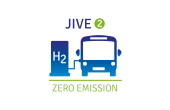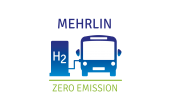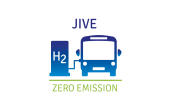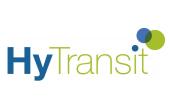CLEAN TRANSPORT IN THE NORTHERN NETHERLANDS PROVINCES OF GRONINGEN AND DRENTHE
29 March 2019
CONTEXT
In 2014, the Groningen/Drenthe region received a grant from the Dutch government to start operating two hydrogen-powered buses. The initiative was meant to serve as a pilot project to better understand everything related to using buses that run on hydrogen. At a later stage, the project was connected to the Fuel Cells and Hydrogen Joint Undertaking (FCH-JU) co-funded European High V.LO-City programme, which aims to accelerate the introduction of hydrogen fuel cell buses.
Specialty chemicals company Nouryon (formerly part of AkzoNobel) has a factory in this region that produces hydrogen as a by-product of its chlorine production. The hydrogen is produced sustainably by electrolysis, using electricity produced from wind energy. The hydrogen is therefore renewable and green, which is unique for the Netherlands. It made perfect sense to use this local hydrogen resource for the regional bus transport project.
To make hydrogen-powered transport a reality in the region, a consortium was founded with parties from the public and private domains, including: The Ministry of Infrastructure and Water Management, the Province of Groningen, the Public Transport Agency Groningen-Drenthe, Qbuzz, AkzoNobel, and Groningen Seaports.
When we were forming the consortium in the early stages of this project, we were looking for a flexible, solution-oriented partner. This project has become an international showpiece for Qbuzz and the Northern Netherlands as a whole. Collaboration and trust are the foundation of this project’s success. PitPoint has proven to be a reliable partner in the project phase, as well as the day-to-day operations.Michel van der Mark, Qbuzz
REQUEST
The consortium asked PitPoint to design, build, maintain and operate a cost-effective hydrogen refuelling station for this project.
CHALLENGE
This project required the team to overcome a variety of challenges – from guaranteeing the quality of the hydrogen and coordinating the delivery of the buses with the completion of the refuelling station, to executing the station as cost-effectively as possible. In addition, the operational phase required close cooperation between PitPoint and Qbuzz to optimally facilitate bus refuelling and ensure good communication if either the buses or the station were unavailable.
APPROACH
According to Oskar Voorsmit, Business Development Manager for Hydrogen at PitPoint: “In order to realise a successful, cost-effective hydrogen station with a wide range of requirements and stakeholders, we took on the role of systems integrator. That means we designed a tailor-made station where we continuously looked at finding the right the balance between the needs of the users and the integral cost of the station itself.”
“As a first step, we worked with the consortium to examine the different possibilities and requirements. Based on that, we created a custom design and corresponding cost estimate that served as input for the entire proposal. When it became clear that our estimate didn’t fit within the overall project budget, we collaboratively searched for different solutions. We then began iteratively adjusting our design until we came up with one that matched the available budget. The final fuelling station was based on this design.”
RESULTS
The hydrogen station in Delfzijl has been operational since early 2018, and Qbuzz’s two hydrogen fuel cell buses are being used for their regular bus services. The station has a high level of availability and the cooperation between Qbuzz and PitPoint is going very well.
PitPoint has been a professional and trustworthy partner in the rollout and operations of the hydrogen fuelling station. In addition, they are very nice people to work with.Erwin Stoker, Public Transport Agency Groningen-Drenthe









